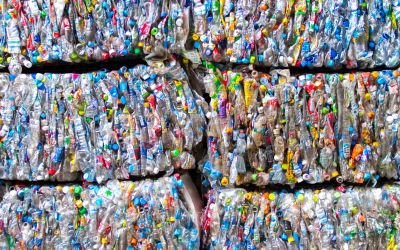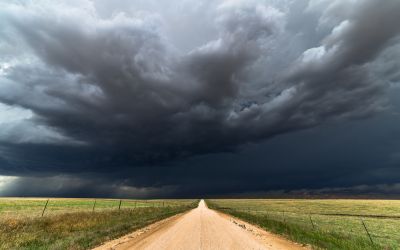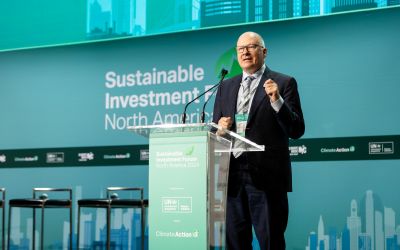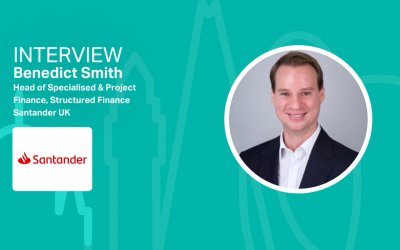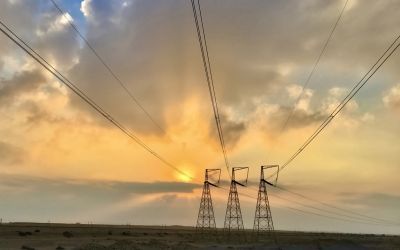Interview with Olivier Rousseau, Executive Director, Fonds de Réserve pour les Retraites (FRR)
Climate Action caught up with Olivier Rousseau, Executive Director, Fonds de Réserve pour les Retraites (FRR), on scaling up low carbon investment and his participation in the first Sustainable Investment Forum Europe.

Climate Action caught up with Olivier Rousseau, Executive Director, Fonds de Réserve pour les Retraites (FRR),on scaling up low carbon investment and his participation in the first Sustainable Investment Forum Europe.
1. Firstly, could you please introduce Fonds de Réserve pour les Retraites and your climate strategy?
FRR started to take climate impact and environmental footprint into account many years ago – it actually started in 2007 and 2009. More recently, in 2014, we embarked on a journey to reduce our carbon risk and exposure. We were part of the team creating the MSCI Low carbon leaders indices and we invested €1bn in those indices in November 2014. We have also expanded the decarbonisation approach to our Smart Beta investment in 2015 and 2016. The result is that at the end of 2016, the carbon footprint of our equity portfolio is 29 per cent below our equity benchmark. It is actually the same figure for the footprint as measured in terms of emissions of CO2 per unit of turnover of the equities of the portfolio and for the fossil fuel reserves of our equity holdings.
Of course, we also did the Article 173 study on our exposure to climate risk for the year 2016. To a large extent, this is also a work in progress because there is one point where we will be more active. Now, it is about impact investing, trying to bring concrete solutions to climate change, and at the same time, positioning our equity portfolio to benefit from progress in this field.
When we did the first step of decarbonisation, we had a risk approach – we wanted to create more robustness in the portfolio ahead of the consequences of public policies and investor attitude towards climate change. By reducing the carbon content we would have smaller impact on our portfolio if and when public authorities were to create a carbon tax or quantitative restrictions on carbon emissions and, if and when the global investment community was to become more aware of the issue of carbon.
We will keep the risk approach but we will also increase the optimistic and constructive approach as opposed to the defensive approach that we had in the past. The optimistic approach is impact investing, investing in new technologies, environmental friendly solutions, energy efficiency etc. We already have a mandate for impact investing but it is half a per cent of our total assets and we certainly think of going beyond that.
2. FRR has committed to reducing its portfolio’s greenhouse gas emissions and excluding coal and related activities – could you tell us a bit more about how you plan to do that?
One part of the approach has been investing in specifically created indices that have lower carbon content but now we have a different approach. We demand that all our passive investments in equities are subjected to a greenhouse gas emissions filter so that the portfolios that are managed by the asset managers that we awarded mandates to have a 50 per cent reduction in carbon content, emissions and fossil fuel reserves, as compared with the indices that we ask our managers to replicate. So they must apply a process whereby at the end of the day, they reduce the carbon footprint of our investments. We do that with all our Smart Beta investments and that is an increasing part of our portfolio – more than a third of our equity portfolio today.
Exclusion of coal related activities is something we decided in December last year. It is just a step, a filter, to make sure that we do eliminate those carbon offenders such as coal which is the worst carbon offender. We have a very low exclusion threshold, which is only 20% while many people have 25%, 30% or even 50%. You know, with the demand for passive management to reduce the carbon emissions and the reserve by 50%, relative to the full carbon indices, our managers have already excluded coal because, again, it is the worst carbon offender. It can have, however, an impact on active management. Active managers can’t include coal stocks in our portfolio.
3. What are some of the key challenges for scaling up low carbon investment in Europe?
I think there is a big group of investors taking the theme in their portfolios. It is happening, progressively. Actually, the uptake is quite impressive, but it is only the beginning of a tide. We expect it to become massive.
The challenges come from the fear that this will generate tracking errors relative to the cap-weighted indices, and tracking errors on the wrong side, being underperformance. But this is a very short-term view. Even if it can sometimes be complicated, the horizon to consider is the medium to long term one, over the next several years and beyond. If you have that horizon, then decarbonizing is a very logical step.
4. You will be speaking at the Sustainable Investment Forum Europe next March. Could you give us a brief outline of what you will be discussing?
I will be happy to talk about the experience and evolution of our thinking regarding decarbonising, preparing for climate change with an optimistic, constructive approach which is bringing solutions via impact investment.
That’s for the climate change side of things, but let’s not forget that there are also two other letters [in ESG] which do have an importance. And it is not just about decarbonising, but also issues such as water scarcity for example are really important, and our impact investing strategy also covers that and will also increase. As for the letters S and G, in a bit of an unfair way, we talk about them a bit less today than three or four years ago. The problem is still there, and it should not be dwarfed by the climate issue, as both of them are also extremely important and we do expect the managers that we award mandates to, to take these issues seriously as well.
If Governance is right, chances that the other two letters are right are higher. On the contrary, if you have the wrong governance, with the wrong incentives and the wrong people, then chances are that the rest will be wrong, including E and S, and the rest of the management of the company by the way. It is important for us at FRR to start with our in-house governance, and in that sense, we do what we think is appropriate. First of all, we have full transparency on our portfolio – every year, we publish the full content, line by line, of our holdings, and as far as I know, we are the only big investor in France to do so. We also try to publish a clear analysis explaining our performance, every year, all the way since the start of FRR. I would also say that we are very proud of the fact that we dared excluding tobacco. We know it’s a considerable risk in the short to medium term but we believe it isn’t one on the long term. Tobacco stocks may or may not outperform again, but we opened our eyes to it – it is a dreadful industry and we should never have invested in it, from a moral standpoint.
Join Olivier Rousseau at the Sustainable Investment Forum Europe on 13 March 2018, register here.


